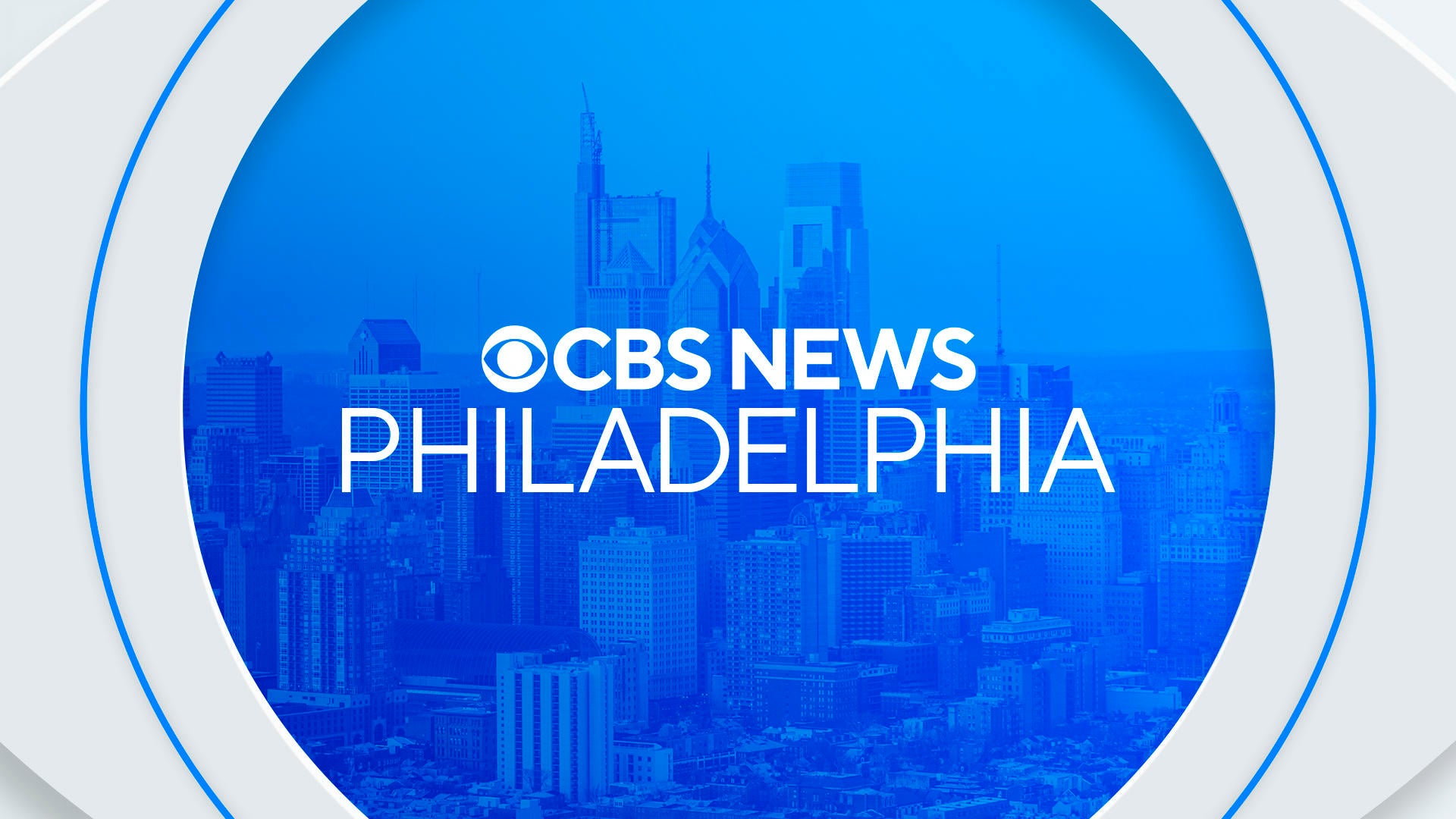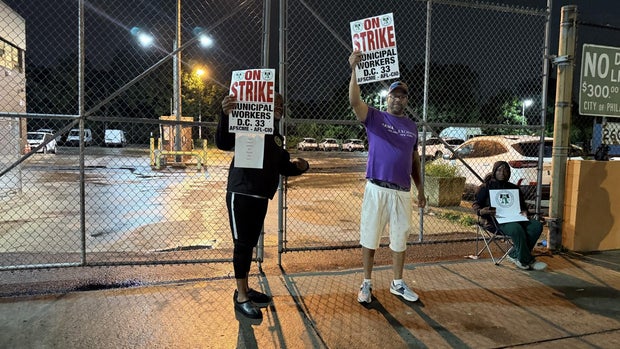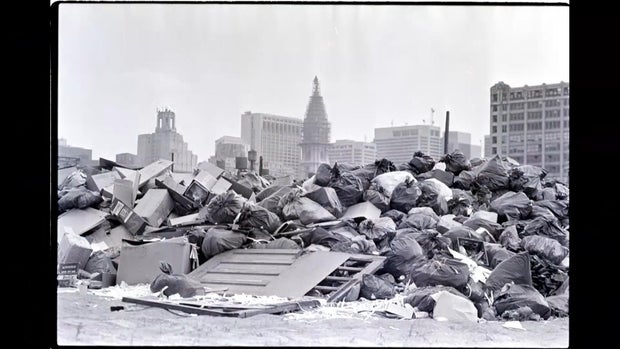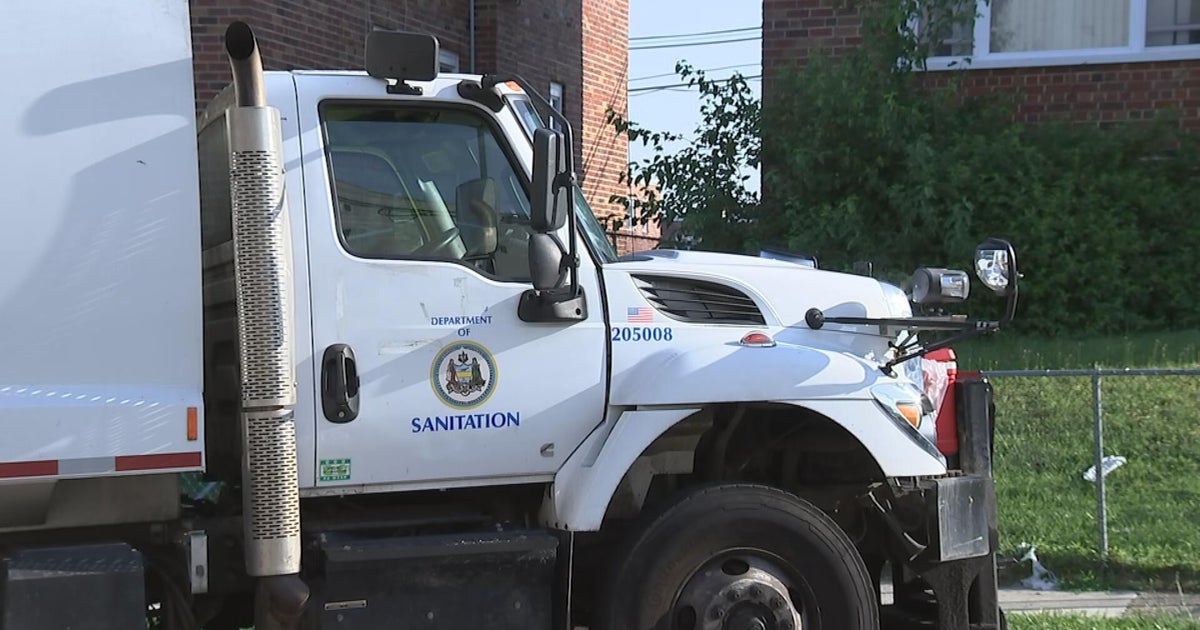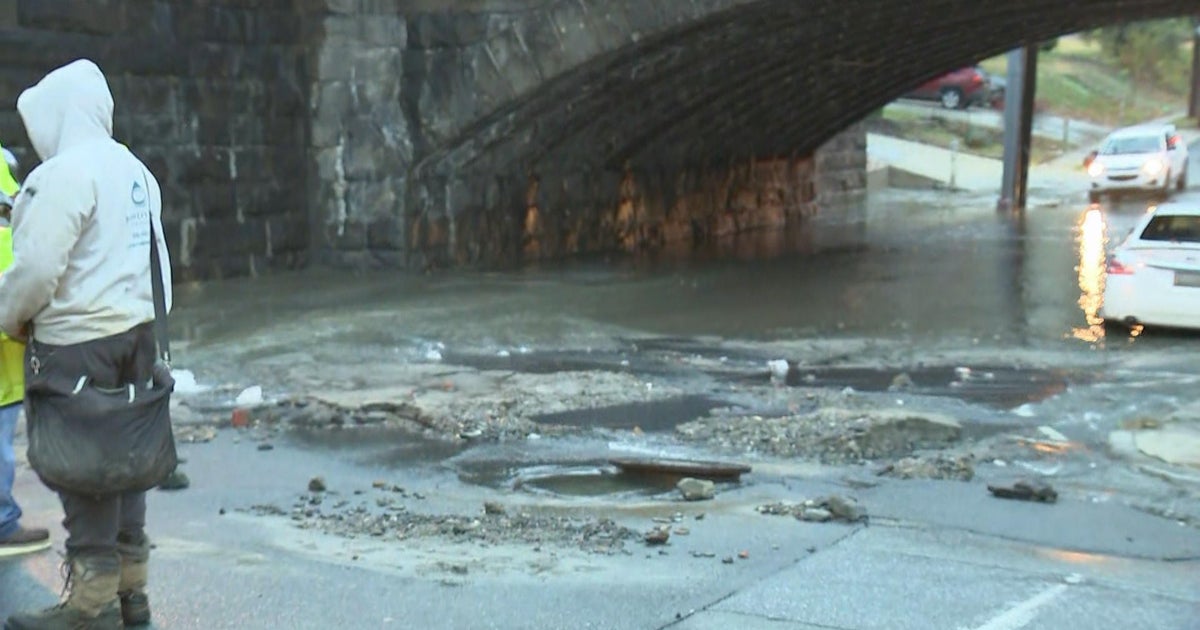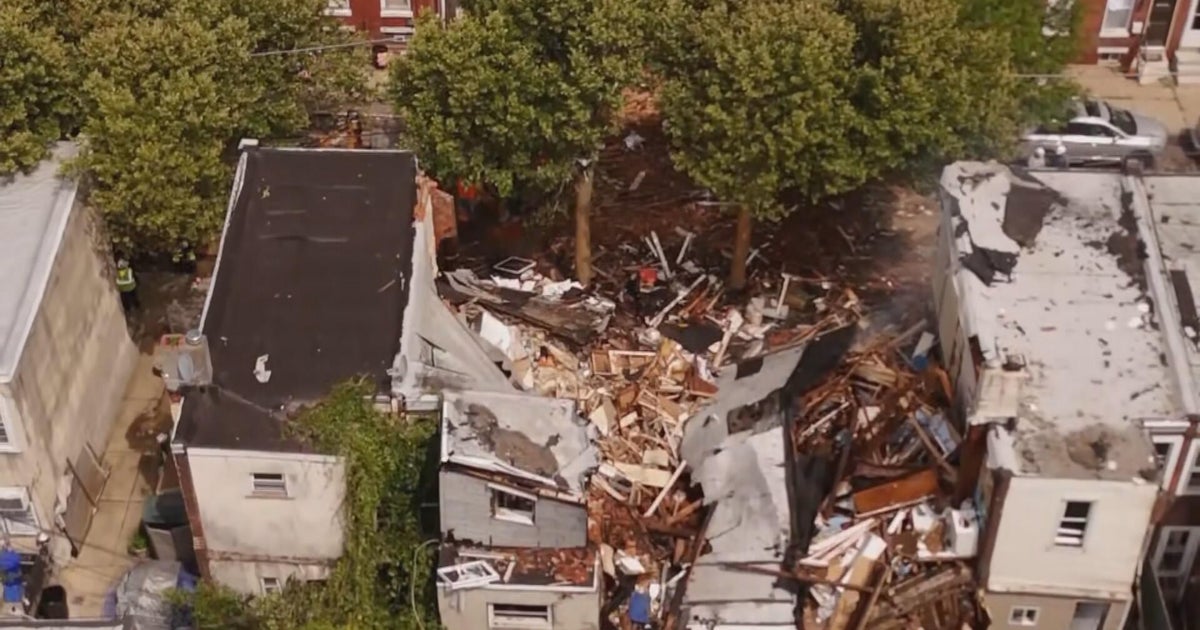Philadelphia's largest blue-collar workers' union goes on strike for first time in nearly 40 years
Philadelphia's largest city workers' union is on strike for the first time in nearly 40 years on Tuesday after a deal couldn't be reached with the city.
AFSCME District Council 33, which represents thousands of city workers, including trash collectors and police dispatchers, is walking off the job after negotiations didn't end in a deal. The union last went on a strike in 1986.
Here's what you need to know about the strike and how it will affect Philadelphia.
Who does AFSCME District Council 33 represent?
District Council 33 represents about 9,000 city workers in services handled by the Sanitation Department, Water Department, Police Dispatch, Streets Department, maintenance at the airport and more. The union left Monday morning's negotiations with the Parker administration without a new contract in place.
"Sometimes in life, you've got to take a step backward to take meaningful steps forward," DC 33 President Greg Boulware said Monday morning before the strike. "And our men and women don't want to do it, and truth be told, can't afford to do it, we can't continue going down the road that we've been going for this many years. We have to see change."
What does AFSCME District Council 33 want?
The union is fighting for higher pay and health care benefits. DC 33 is seeking an 8% pay increase every year for four years and health care benefits for all employees.
Mayor Cherelle Parker said in a video on social media over the weekend that her administration proposed a deal to increase workers' pay by more than 12% over her term. She called it the largest one-term pay increase from any mayor in more than three decades. She added that health care coverage would not be taken away.
What happens to trash pickup in Philadelphia with workers on strike?
Parker said on Monday that Philadelphia residents should refrain from placing trash and recycling cans at the curb starting Tuesday with a strike in effect. She also urged Philadelphians not to dump trash anywhere illegally.
"Obviously, this is the topic that is on everyone's minds today. How will the city dispose of my trash if there's a work stoppage? If there is a work stoppage, the Department of Sanitation will be operating on what we refer to as a modified capacity," Parker said Monday. "There will be no residential trash collection or recycling effective Tuesday, July 1. We encourage residents, and we ask you to please refrain from placing any trash or recycling out for curbside collection until further notice."
Parker said the city is arranging 63 temporary drop-off locations for Philadelphia residents to bring their trash because of the strike, and that the list would be available on the . Residents should bring their trash on their regular collection days, and more locations will open if needed, the mayor said.
The temporary drop-off locations will be open starting at 5 p.m. on Tuesday. Then, they'll be open from 6 a.m. to 10 p.m. Monday through Saturday. The six Sanitation Convenience Centers will be open from 6 a.m. through 10 p.m. every day.
However, all convenience centers and temporary sites will be closed for the Fourth of July if the strike goes on that long.
The city is asking residents to bring no more than eight bags of trash at a time and not to bring any loose trash.
Recyclable materials will only be accepted at the six Sanitation Convenience Centers. The city is asking residents to hold onto recycling materials for as long as possible because the trash will be the main priority due to health and safety concerns.
What else will the strike affect in Philadelphia?
The strike will also affect rec center programs, 911 dispatch, airport operation workers, some Water Department staff, and other city employees, including the Department of Public Health, Department of Revenue services and License and Inspection enforcement.
Crossing guards working near 63 schools with summer programming are part of the union and are expected to walk off the job, the School District of Philadelphia said. The district is asking parents to make sure they have a plan for their children to get to and from the schools safely during the strike.
Philadelphia police said the department will move 200 officers into the 911 operations call center because of the strike.
Officials are asking for callers' patience when they call 911 because wait times will increase, and they said callers should not hang up.
With the strike in effect, the city will keep only 25 city pools open, as DC 33 workers are responsible for pool maintenance. The will have information about which pools are open.
The Water Department said it is cross-training employees to assist during a strike. Still, the department said customers could experience longer wait times for service and repairs, and workers will prioritize repairs by severity and available resources.
The Water Department said its customer contact line will remain open but wait times could be longer than usual. Residents can call 215-685-6300 to report emergency issues. Customers should use the self-service options online and over the phone to pay bills and get account information.
Philadelphia International Airport will remain open and operational, officials said. A spokesperson for the airport said workers who are not part of the union will cover DC 33 jobs during the strike.
According to the mayor's office, most Department of Health services in the city will be available, but some services at health centers might be "temporarily unavailable or delayed." Some appointments could also be moved to virtual, and other services might be referred out to another provider.
Strike happens days before Wawa Welcome America July Fourth Festival
District Council 33 is going on strike days ahead of the city hosting the Wawa Welcome America July Fourth Festival on the Benjamin Franklin Parkway.
LL Cool J and Philadelphia native Jazmine Sullivan are the headliners of the event.
Parker said on Monday that the events will continue as planned.
